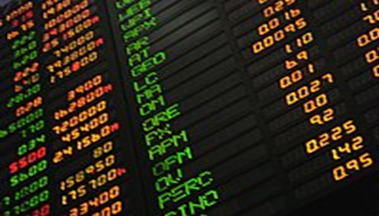Introduction
While going through Economic Times in our local newspaper, we all might have stumbled across the word Forex Exchange Market but what is it? Now and then we hear the news that the Indian currency has gained value against US Dollar but who decides this? Is there a guy on the computer generating these exchange rates randomly as per his whims…. fortunately, the answer is a big NO! These rates are decided by the foreign exchange market, the Forex or FX market which is a global decentralized marketplace where currencies are bought and sold. It is the world’s largest and most liquid financial market, with daily transactions worth trillions of dollars. In this blog, we’ll take a closer look at the foreign exchange market, including its importance, how it works, the factors that affect it, and the risks involved.
What is the foreign exchange market?
The foreign exchange market is where currencies are traded. Its participants include large international banks, corporations, hedge funds, individual investors, and central banks. Transactions can be on the spot (immediate delivery) or can be forwarded (delivery at a future date) and are typically conducted over-the-counter (OTC), meaning they are not traded on an exchange. Since currencies are always traded in pairs, the foreign exchange market does not set a currency’s absolute value but rather determines its relative value by setting the market price of one currency if paid for with another. The most actively traded currencies are the US dollar, Euro, Japanese Yen, British pound, and Swiss franc.
Factors affecting the foreign exchange market

Several factors affect the foreign exchange market, including economic, political, and other factors. Economic factors that impact exchange rates include interest rates, inflation, and economic growth. For example, if a country’s interest rates increase, its currency tends to appreciate because investors will earn higher returns on their investments. Political factors such as government stability and international trade policies can also impact exchange rates. Natural disasters and geopolitical tensions are other factors that can also affect the foreign exchange market.
How the foreign exchange market works
The foreign exchange market works through the interaction of supply and demand for currencies. Exchange rates are determined by the market’s participants, who are constantly buying and selling currencies. Currency pairs, such as USD/EUR, are used to indicate the value of one currency in relation to another. Banks serve as intermediaries between buyers and sellers, while central banks are responsible for regulating the currency supply and interest rates. Corporations use the foreign exchange market to manage their exposure to foreign currencies, while individual traders speculate on exchange rate movements. Some of the transaction methods are:
1)Spot Transaction
A spot transaction is a two-day delivery transaction, incontrast with the future contracts, which are usually three months. This trade represents a “direct exchange” between two currencies. It has the shortest time frame, involves cash rather than a contract, and interest is not included in the agreed-upon transaction
2)Forward Transaction
One way to deal with foreign exchange risk is to engage in a forward transaction. In this transaction, money does not actually change hands until some agreed-upon future date. A buyer and seller agree on an exchange rate for any date in the future, and the transaction occurs on that date, regardless of what the market rates are then. The duration of the trade can be one day, months, or years.
3)Swap
The most common type of forward transaction is a Swap in which two parties exchange currencies for a certain length of time and agree to reverse the transaction at a later date. These are not standardized contracts and are not traded through an exchange. A deposit is often required to hold the position open until the transaction is completed.
4)Option
A foreign exchange option is a derivative where the owner has the right but not the obligation to exchange money denominated in one currency into another currency at a pre-agreed exchange rate on a specified date.
Risks associated with the foreign exchange market
There are several risks associated with the foreign exchange market.
- Market risk is the risk of loss due to exchange rate fluctuations.
- Credit risk is the risk of default by one of the parties involved in a transaction.
- Operational risk is the risk of loss due to errors or failures in operational processes, such as settlement or clearance.
- Legal risk is the risk of loss due to legal disputes or regulatory changes.
Conclusion
The foreign exchange market is a complex and dynamic marketplace that plays a vital role in the global economy. It enables the exchange of currencies between countries, allowing for international trade and investment. Understanding the foreign exchange market is essential for businesses and investors looking to manage their exposure to foreign currencies. However, it’s important to be aware of the risks involved and to take appropriate measures to manage them.

